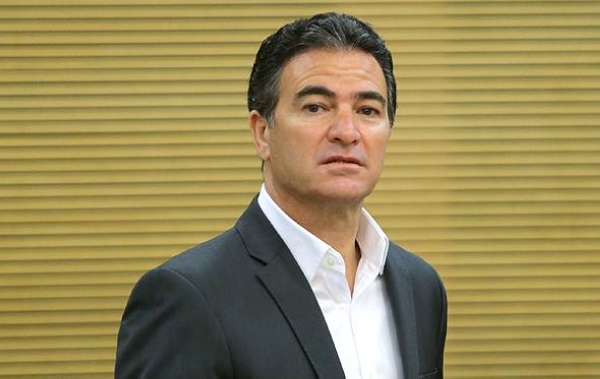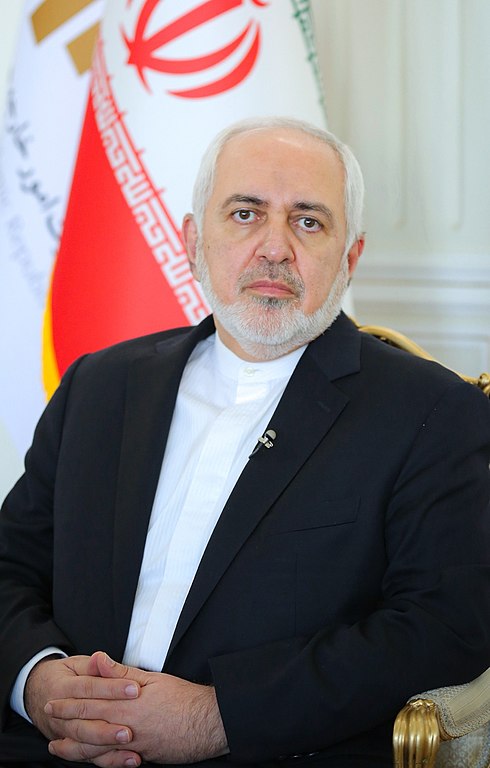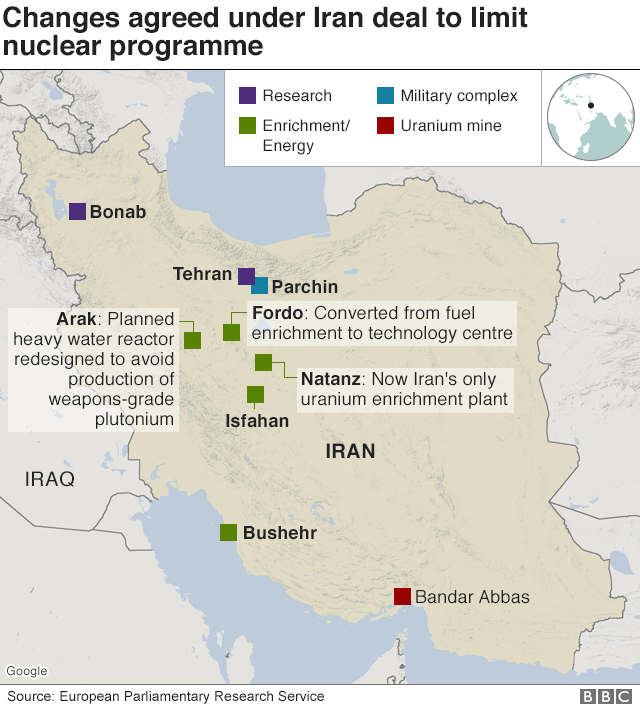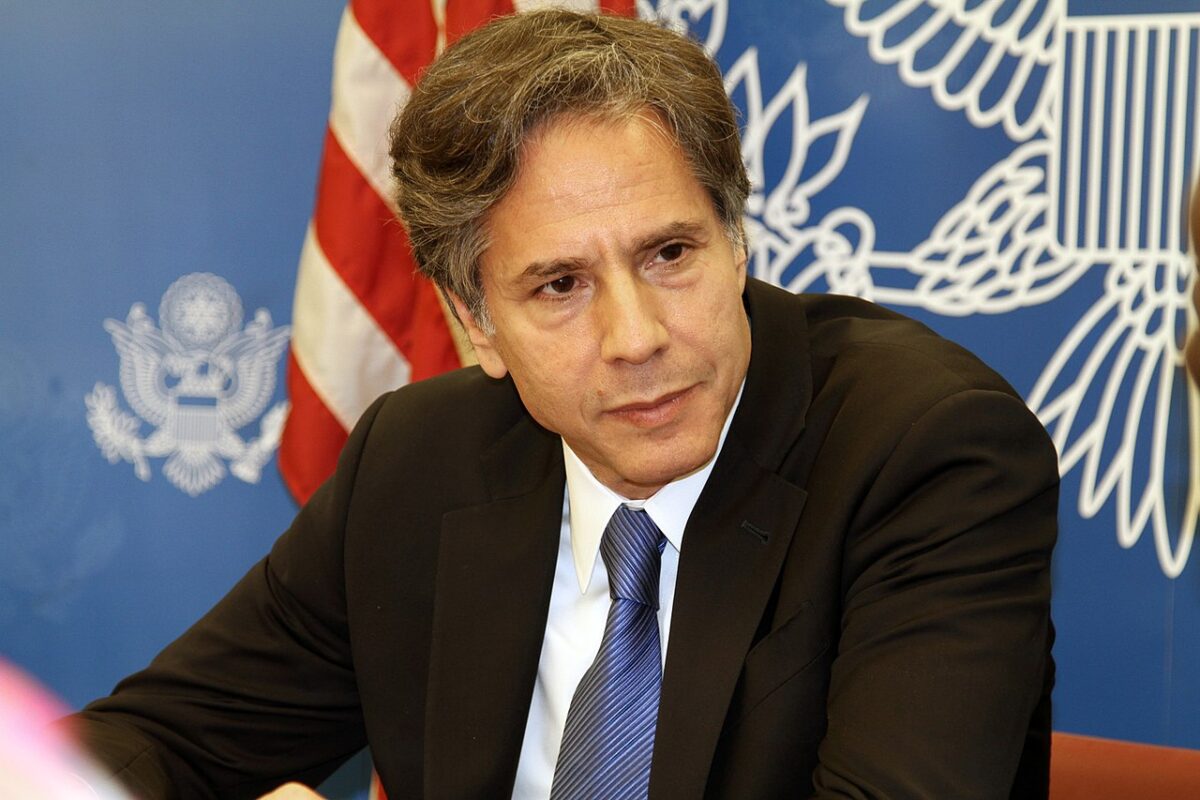Israel has launched an orchestrated campaign to induce the United States to either stay out of the 2015 Iran nuclear agreement or completely revamp it to its satisfaction.
Prime Minister Benjamin Netanyahu, a vehement opponent of the accord, fired the first shot across the bow even before Joe Biden succeeded Donald Trump as U.S. president on January 20.
Knowing that Biden had lambasted Trump’s 2018 decision to unilaterally withdraw from the accord, and cognizant of Biden’s interest in returning to it, Netanyahu said, “There can be no going back to the previous agreement. We must stick to an uncompromising policy of ensuring that Iran will not develop nuclear weapons. We will not allow Iran to acquire nuclear weapons.”

Around the same time, the then Israeli ambassador to the United States, Ron Dermer, urged the United States to “work out a common position” with its Middle Eastern allies before engaging Iran in negotiations.
Earlier this month, Settlement Affairs Minister Tzachi Hanegbi warned the incoming Biden administration against “appeasing” Iran. And in a forceful threat, he strongly hinted that Israel might have no alternative but to attack Iran’s nuclear facilities if the United States rejoins the agreement, which was also signed by Russia, China, Britain, France and Germany.

Trump withdrew from the agreement in May 2018 in the hope of forging a far better one from his point of view. He then imposed new and crippling economic sanctions on Iran.
Trump’s tactic of “maximum pressure” did not deter Iran. Last month, the Iranian parliament passed legislation requiring Iran to incrementally abandon its obligations under the agreement. Iran resumed enriching uranium to a level of 20 percent and announced its intention to manufacture uranium metal, a key component of a nuclear weapon.

Amid these ominous developments, Channel 12 in Israel reported that the director of the Mossad, Yossi Cohen, would lay out Israel’s demands during a visit to Washington, D.C. in the next few weeks.
The Israeli government believes the agreement, known as the Joint Comprehensive Plan of Action, is fatally flawed.
Michael Oren, Israel’s former ambassador to the United States, explained Israel’s rationale in a recent article: “Iran needs to acquire three components in order to become a military nuclear power: highly enriched uranium, a functional warhead, and a missile capable of delivering it. The Joint Comprehensive Plan of Action addresses only the first of these efforts in any detail, and even then, offers merely partial and temporary solutions. The deal largely ignores the second effort, and actually advances the third.”

In a revised agreement, Israel would demand that Iran halts the enrichment of uranium, stops the production of advanced centrifuges, and allows the International Atomic Energy Agency full access to its nuclear sites. In addition, Iran would have to cease its support for Hezbollah, Hamas and Islamic Jihad and end its military presence in Syria, Iraq and Yemen.
On January 26, the chief of staff of the Israeli armed forces, General Aviv Kohavi, upped the ante by announcing that Israel is preparing fresh operational plans to strike Iran’s nuclear sites should this become necessary. He cited Iran’s growing stockpile of enriched uranium and its upgraded centrifuges.

Kohavi not only denounced the current agreement, but declared that an improved version would be wholly unacceptable to Israel.
According to the International Atomic Energy Agency, Iran is now in possession of more than 2,400 kilograms of enriched uranium — which is more than eight times the amount set by the agreement — and is closer than ever before to a “breakout” time for quickly making a nuclear bomb.
Before his election as president, Biden explained his vision of what he would consider a better agreement. In a piece for CNN last September, Biden wrote that Trump’s Iran policy had “proven to be a dangerous failure” and that the United States needed “to change course.”

“I have no illusions about the challenges the regime in Iran poses to America’s security interests, to our friends and partners,” he added. “But there is a smart way to be tough on Iran …”
In outlining his position, Biden wrote:
“First, I will make an unshakable commitment to prevent Iran from acquiring a nuclear weapon. Second, I will offer Tehran a credible path back to diplomacy. If Iran returns to strict compliance with the nuclear deal, the United States would rejoin the agreement as a starting point for follow-on negotiations. With our allies, we will work to strengthen and extend the nuclear deal’s provisions … Third, we will continue to push back against Iran’s destabilizing activities, which threaten our friends and partners in the region … We will also work closely with Israel to ensure it can defend itself against Iran and its proxies …”
In addition, Biden promised to impose sanctions on Iran if it continued to support terrorism and develop its ballistic missile capability.
Antony Blinken, the new U.S. secretary of state, told Congress on January 27 that the United States will not nullify any of its sanctions against Iran unless it returns to full compliance with the agreement. “But we are a long ways from that point,” he noted.

Speaking to the Senate’s Foreign Relations Committee on January 19, Blinken said a “stronger” new agreement would have to address Iran’s “destabilizing activities” in the Middle East and its missiles program.
Blinken said he would not sign a new agreement with Iran unless Israel and Arab allies like Saudi Arabia and the United Arab Emirates are fully on board. “It is vitally important that we engage on the takeoff, not the landing, with our allies and partners in the region,” he said.
Jake Sullivan, Biden’s national security advisor, has expressed optimism that the agreement can be salvaged, and strengthened, if Iran returns to full compliance.

The Biden administration, however, has no illusions about Iran. In a show of force reminiscent of the Trump administration, Biden sent a B-52 bomber to the Middle East on January 27. The flight was aimed at building leverage ahead of possible talks with Iran and dissuading Iran from retaliating for the U.S. assassination of Quds Force commander Qassem Soleimani last January.
Despite its long history of animosity with the United States, Iranian President Hassan Rouhani has welcomed Biden’s offer to resuscitate the agreement. But he said the United States would have to make the first move. “If they issue an order, Iran too, will issue an order, not more.”
Alluding to Rouhani’s comment, Iranian Foreign Minister Mohammed Javad Zarif said that Iran is willing to return to the agreement only after the United States lifts sanctions. Most recently, Zarif said that Iran will not accept changes to the agreement. “It will never be renegotiated. Period.”

If the status quo prevails, and if the United States fails to revise the agreement, the Iranian regime would most probably disengage from it gradually, leaving Iran free to develop a nuclear arsenal. This would be a worst-case scenario for Israel.
If this happens, Israel would be sorely tempted to deploy military force to disable or destroy Iran’s nuclear infrastructure, as Israeli leaders already have suggested.

This is no idle threat. The Israeli Air Force obliterated the nuclear reactors of Iraq and Syria in 1981 and 2007 respectively.
A preemptive Israeli strike in Iran would be a gamble of epic proportions. Iran would surely respond, triggering a destructive regional war that could pull in Hezbollah and Hamas, two of Iran’s proxies.
Israel is acutely aware that Iran’s response would be deadly. In all likelihood, it would take the form of a massive missile bombardment of Israeli cities, military bases and Israel’s atomic reactor in Dimona.
A retaliatory strike of this kind, which could inflict fearsome casualties and cause staggering property damage, would be on a far bigger scale than Iraq’s or Hezbollah’s missile strikes on Israel in 1991 and 2006.
Given this sobering reality, Israel must decide whether its national interests are better served with or without an Iran nuclear agreement.
